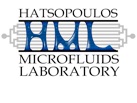The Ronald F. Probstein Lecture
In Engineering Science

The Ronald F. Probstein Lecture
In Engineering Science


One of America’s foremost engineering scientists, Ronald Probstein is Ford Professor of Engineering, Emeritus at MIT. His undergraduate training was at NYU’s night school and his graduate work was in aeronautical engineering at Princeton.
For his achievements, he has been honored by election to the National Academy of Sciences, the National Academy of Engineering, the American Academy of Arts and Sciences, the International Academy of Astronautics and awarded an honorary doctorate from Brown University. He has received many awards including a Guggenheim Fellowship and has been elected a Fellow of numerous engineering and scientific societies.
He has 10 technical books, 6 patents, and over 125 technical papers to his credit. The importance of his work is brought out by the fact that a number of his books published some time ago have been reprinted within the last few years, including one on high-temperature gas physics, one on hypersonic flow, one on physicochemical hydrodynamics, and this spring one on synthetic fuels. The driving force for the reprinting has been the need to bring the material covered to new generations of scientists and engineers engaged in some of the country’s leading edge technical programs.
Previous Lectures:
• 2011: “Platelet Margination in the Microvasculature" by Eric S.G. Shaqfeh, Stanford University
• 2009: “Technology, Policy, and Values for Living in a Greenhouse” by Robert H. Socolow, Princeton University
•2006: “Wet Versus Dry” by Professor David Quéré, École Superieure De Physique et de Chimie Industrielles (ESPCI)
•2003: “Equilibrium and Non-Equilibrium Mechanisms of Liquid-Liquid Coalescence and Detachment at the Nanoscale” by Professor Jacob Israelachvili, UC Santa Barabra
•2001: “Self-Assembly and Its Applications” by Professor George M. Whitesides, Harvard University
•1999: “From Rice to Snow: Ideas and Disputes about the Mechanics of Granular Materials” by Professor Pierre-Gilles de Gennes, École Supérieure de Physique et de Chimie Industrielles